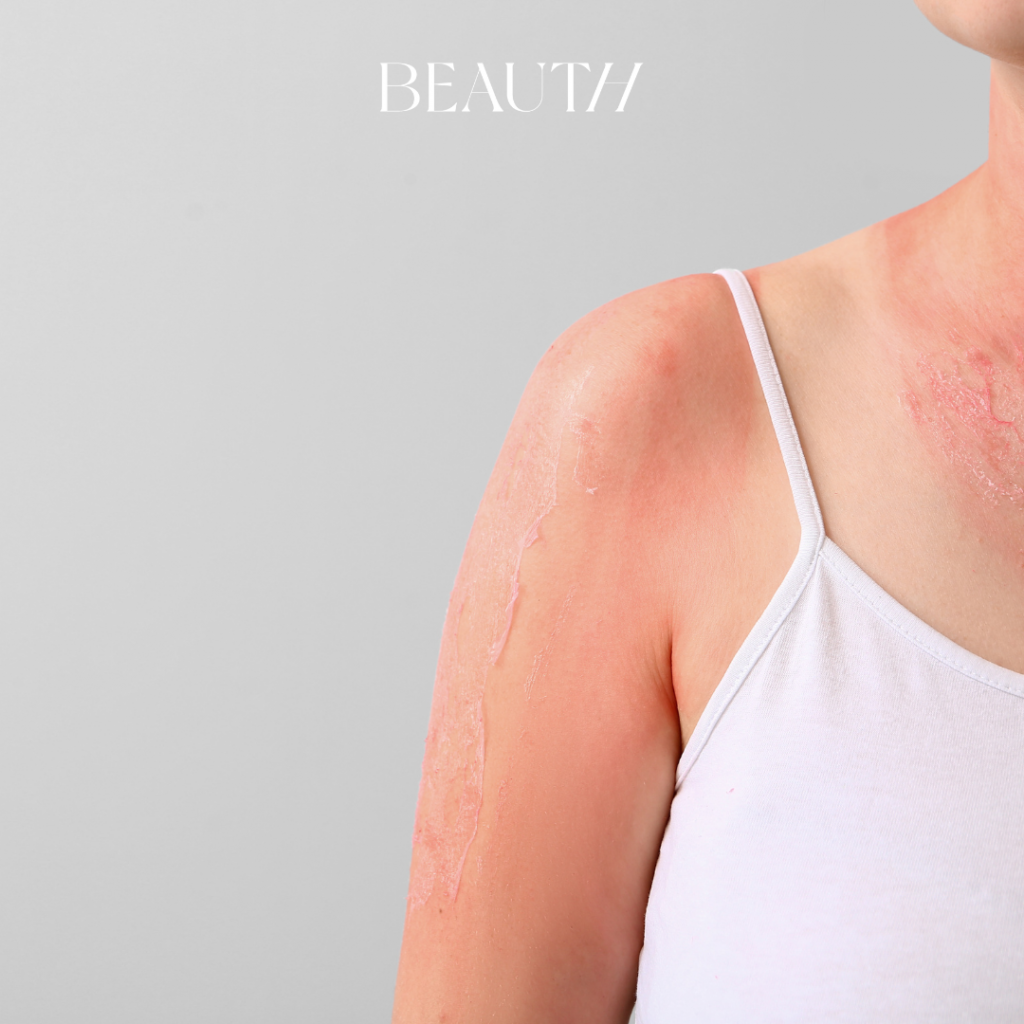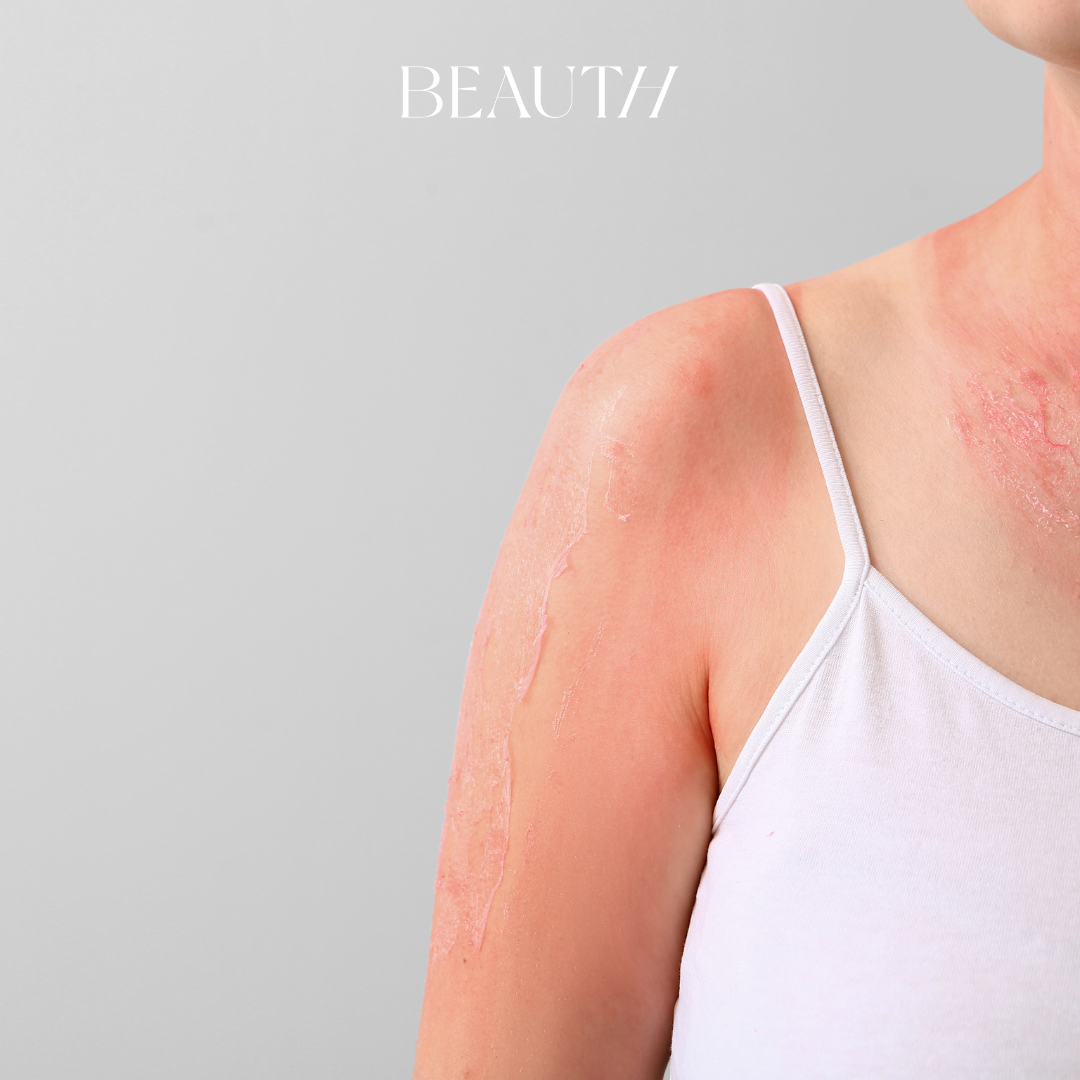Summer can bring a host of skin care problems. Here are some common issues and their solutions:
- Sunburn: Sunburn is a common problem during summer, and it can be painful and damaging to the skin. To prevent sunburn, wear protective clothing and use broad-spectrum sunscreen with an SPF of 30 or higher. If you do get sunburned, apply aloe vera gel or a cool compress to soothe the skin. Spending too much time in the sun can result in sunburn. Skin burns might result from it. Sunburn can affect anybody, regardless of skin tone, while those with lighter skin are more vulnerable.
2. Home remedies can typically make people feel better, but if a person experiences fever, dizziness, or changes in consciousness, they need to see a doctor right away.
3. Limiting time spent in the sun and taking precautions like using sunscreen, hanging out in the shade, and donning body-covering clothing are some ways to help prevent sunburn.
4. Heat rash: Heat rash is a rash that occurs when sweat ducts become blocked and sweat is trapped under the skin. To prevent heat rash, wear loose, breathable clothing and avoid excessive sweating. If you get a heat rash, keep the affected area cool and dry, and use calamine lotion or a cool compress to soothe the skin. Heat rash usually heals by cooling the skin and avoiding exposure to the heat that caused it. See your healthcare provider if you or your child has symptoms that last longer than a few days or if the rash seems to be getting worse.

5. Acne breakouts: The heat and humidity of summer can contribute to acne breakouts. To prevent acne, wash your face twice a day with a gentle cleanser, and avoid touching your face with your hands. Use non-comedogenic products and avoid wearing heavy makeup. If you do get a breakout, use over-the-counter acne treatments or consult a dermatologist for prescription-strength treatments.
6. Dry skin: Despite the humidity, air conditioning and time spent in the sun can dry out your skin during the summer. To prevent dry skin, moisturize regularly with a lightweight moisturizer, and avoid long, hot showers or baths. If your skin is already dry, use a richer moisturizer and consider using a humidifier in your home.
7. Excessive sweating: Excessive sweating can be uncomfortable and contribute to body odor. To prevent excessive sweating, wear loose, breathable clothing and use antiperspirant or deodorant. If excessive sweating is a persistent problem, consult a dermatologist for treatment options.
Remember that everyone’s skin is unique and may require personalized care and treatment. Consult a dermatologist for specific advice and treatment options.

